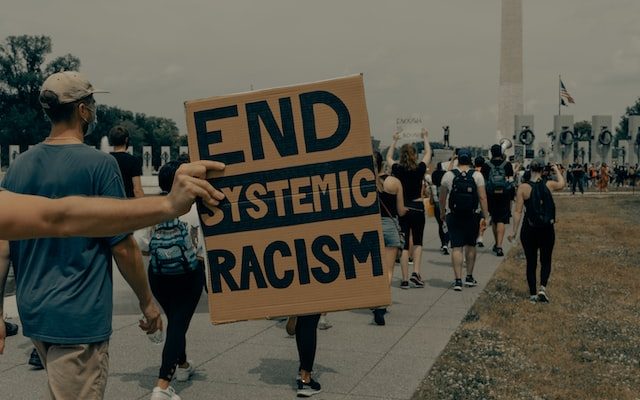Representative image of ending Systemic Racism on Unsplash by clay banks
Toronto/CMEDIA: Following Toronto International Film Festival (TIFF) 2020 discussion, on June 9, 2020, TIFF Co-Heads Joana Vicente and Cameron Bailey, and Board Chair Jennifer Tory, notified staff, TIFF Members, partners, industry, and media of TIFF’s commitment to combat systemic anti-Black racism internally, and beyond.
Being accountable for confronting the many ways in which the Canadian arts sector has reinforced systemic racism in its programming, staffing, and audience engagement, TIFF is holding a digital roundtable discussion with leaders from Telefilm Canada, the Indigenous Screen Office, the Canada Media Fund, CBC/Radio-Canada, Bell Media, the NFB, and the Academy of Canadian Cinema & Television.
Each will discuss ways of making sustainable change to get an institutional perspective on future steps to push reform and policy to ensure a more equitable industry and society.
Canada’s Top Ten Industry Forum kicked off with Addressing Systemic Racism in Canada’s Media Section Part 2: Where Are We Now?
Moderated by Anita Lee, representatives from the Academy of Canadian Cinema & Television, BIPOC TV and Film, Black Screen Office, Canadian Independent Screen Fund, Canada Media Fund, CBC, Indigenous Screen Office, National Film Board, Ontario Creates, Racial Equity Media Collective, Telefilm Canada, TIFF spoke to how they are putting anti-racist mandates into practice two years later through funding and increasing the financial opportunities available to BIPOC creators, for example.
Canadian stories that reflect the whole country, there is an ongoing need for authenticity
To bring those marginalised perspectives to the forefront there is “a sense of urgency that needs to be felt, as we stand to lose another generation of BIPOC talent.” Sally Lee from CISF was reprted saying.
In terms of career development, Lisa Valencia-Svensson, REMC reported noting that “training is crucial, but needs to be bolstered by in-depth apprenticeships” but for mid-career BIPOC creators who are frequently trained but less frequently funded a different kind of support is required.
While there is an increased awareness and willingness to commit to anti-racist work, this remains an ongoing issue for which there is no quick fix ― systemic change requires time, hard work, and innovation. Public agencies need to see one another “as partners in industry transformation, rather than competitors” (Kadon Douglas, BIPOC TV and Film).
#TIFF; #SystemicAntiBlackRacism





